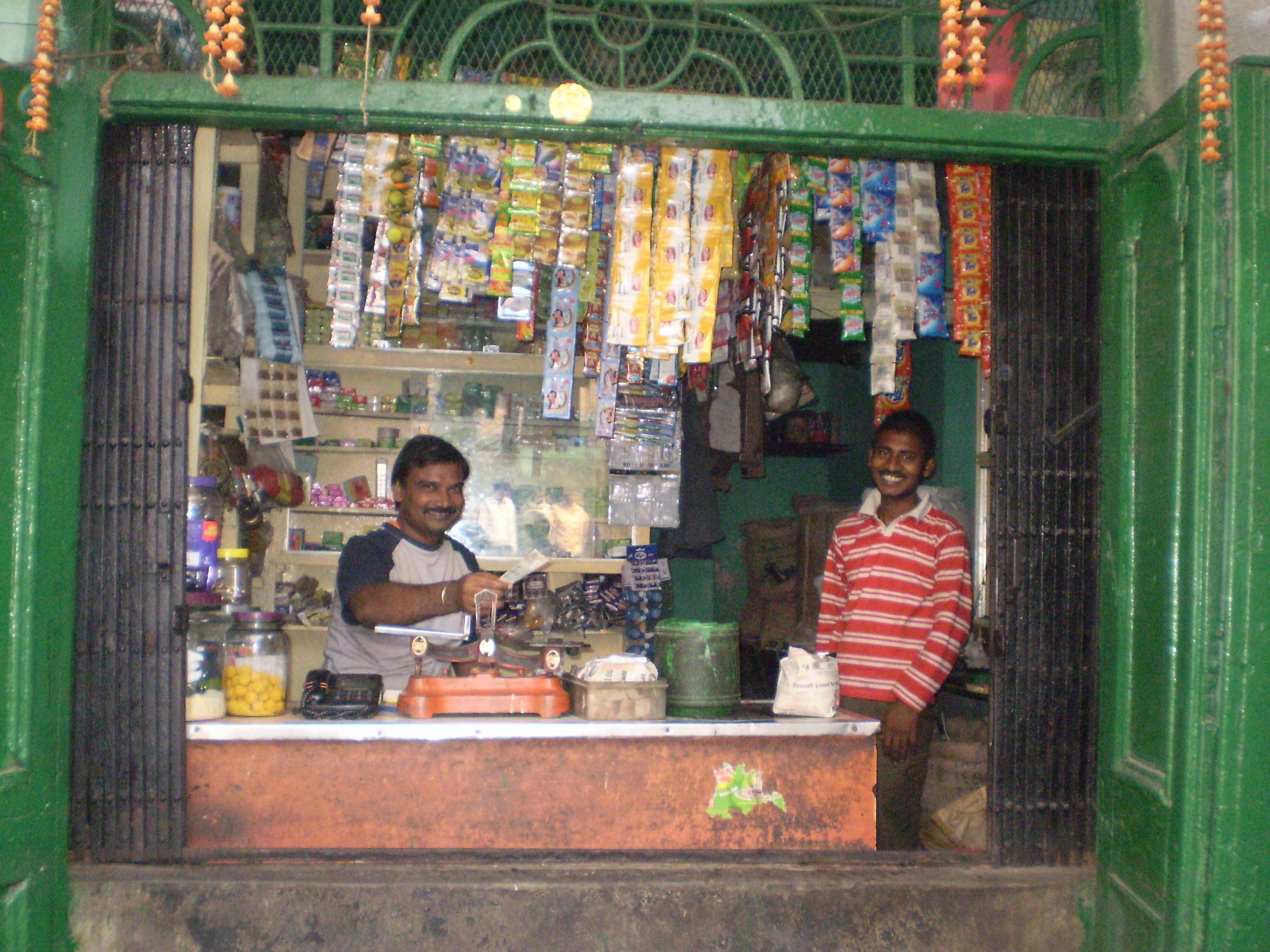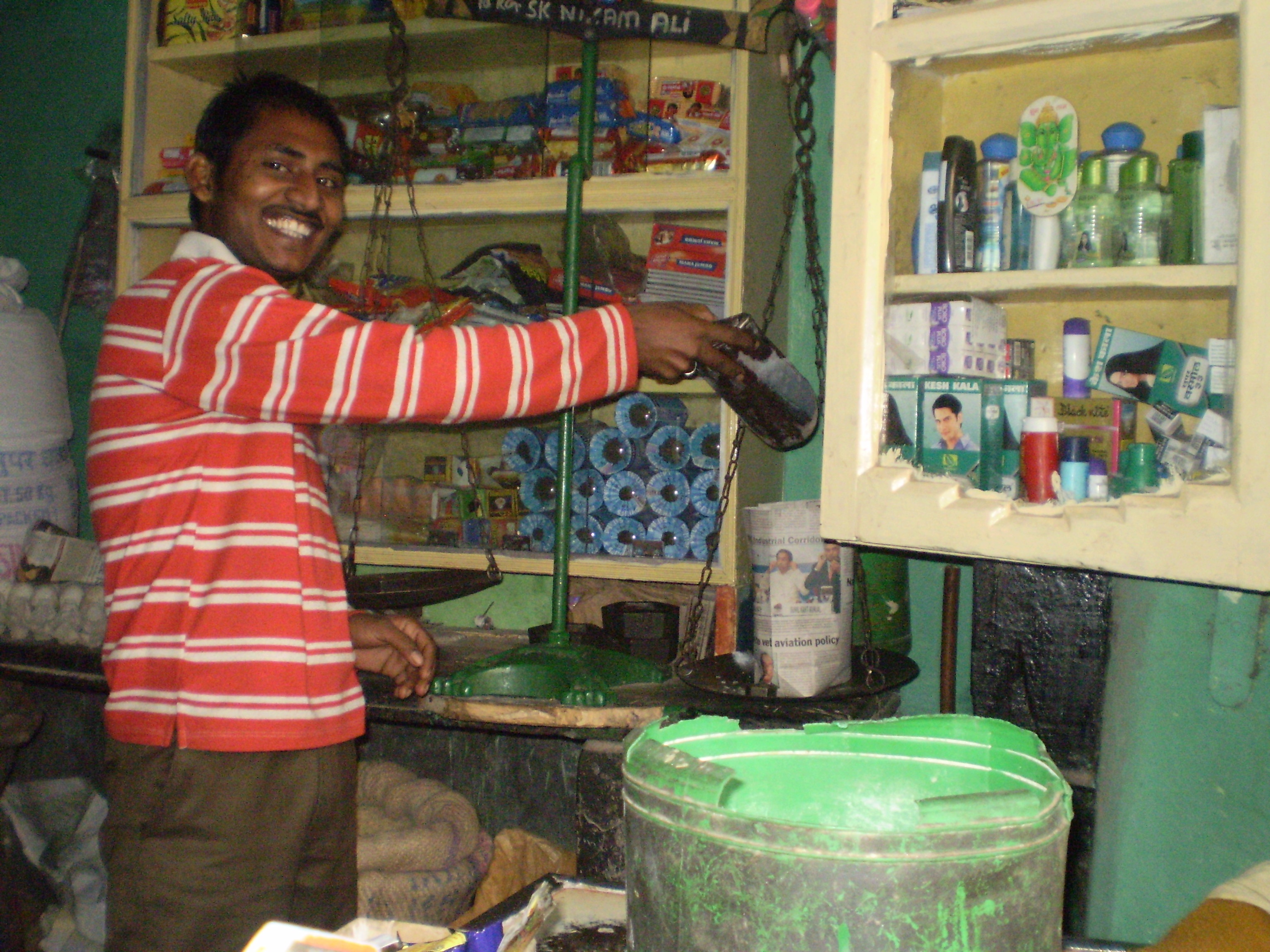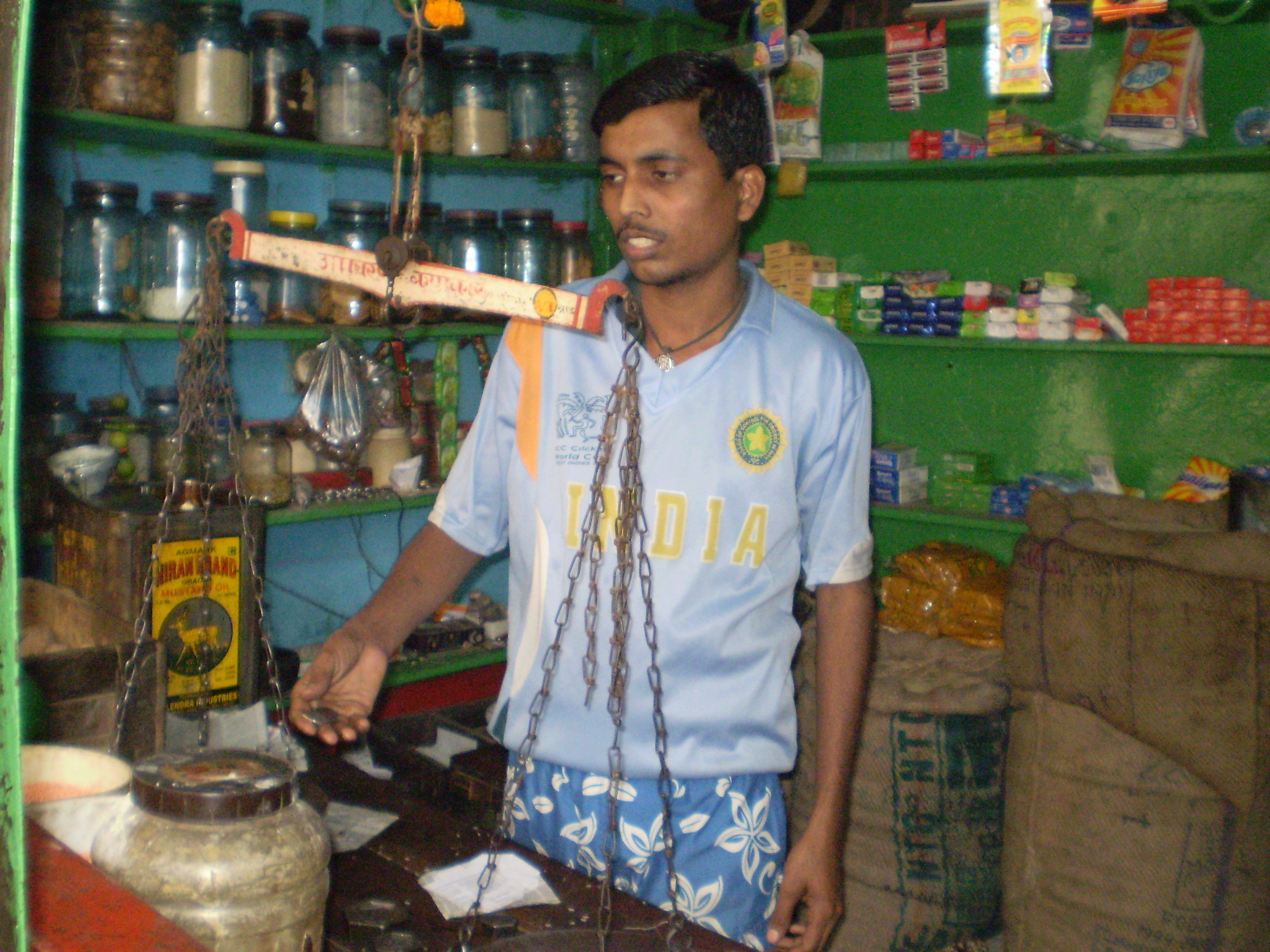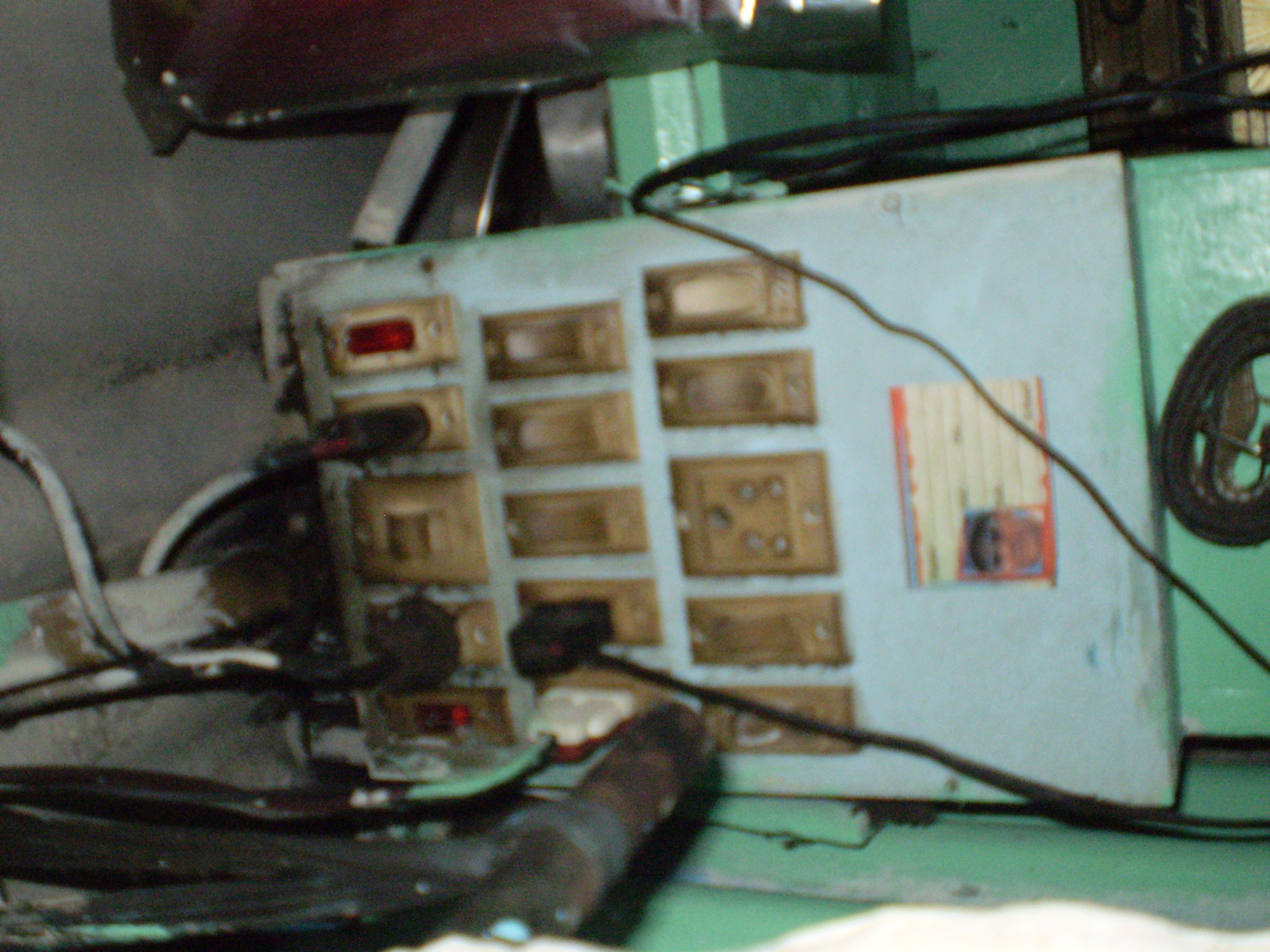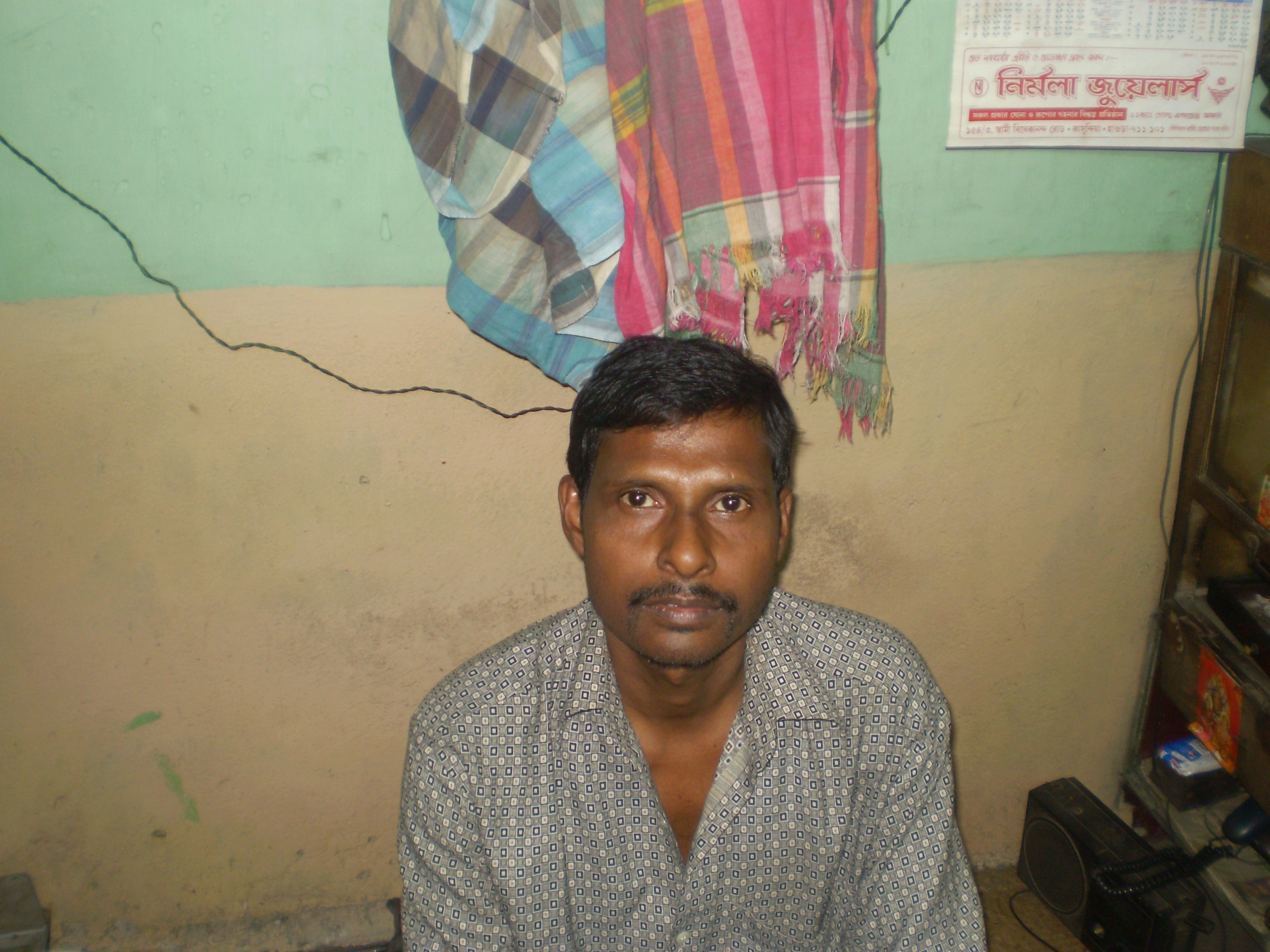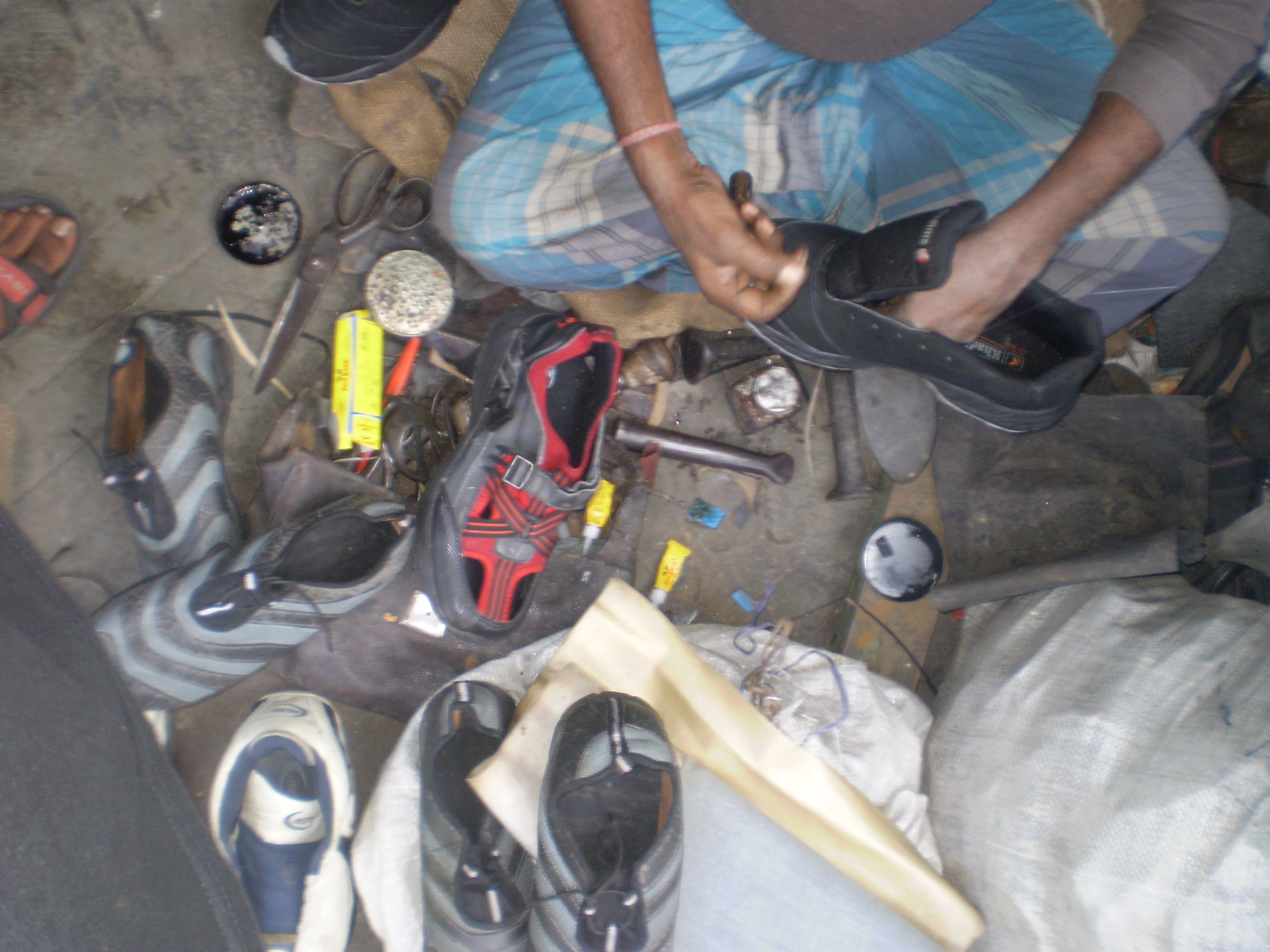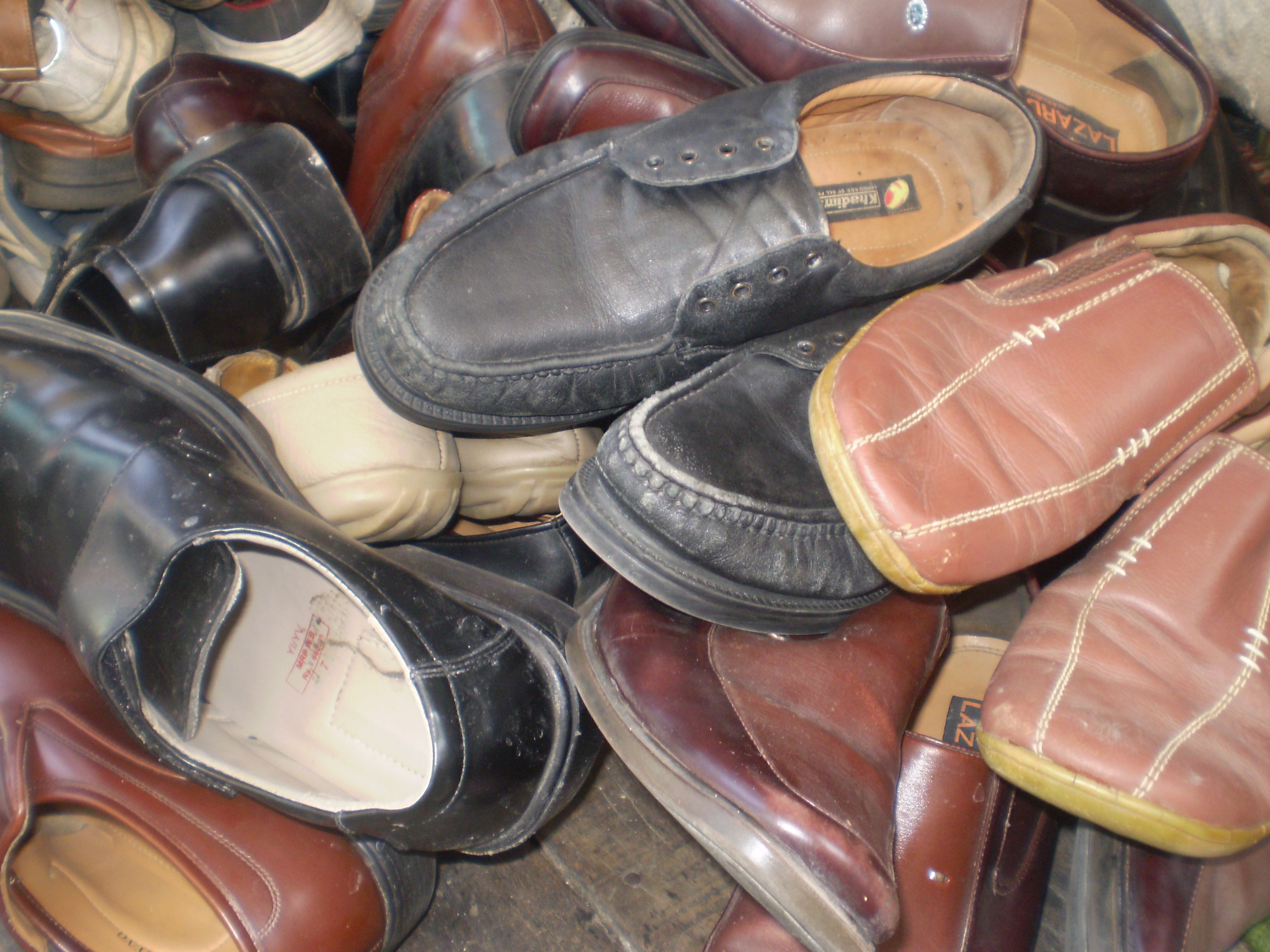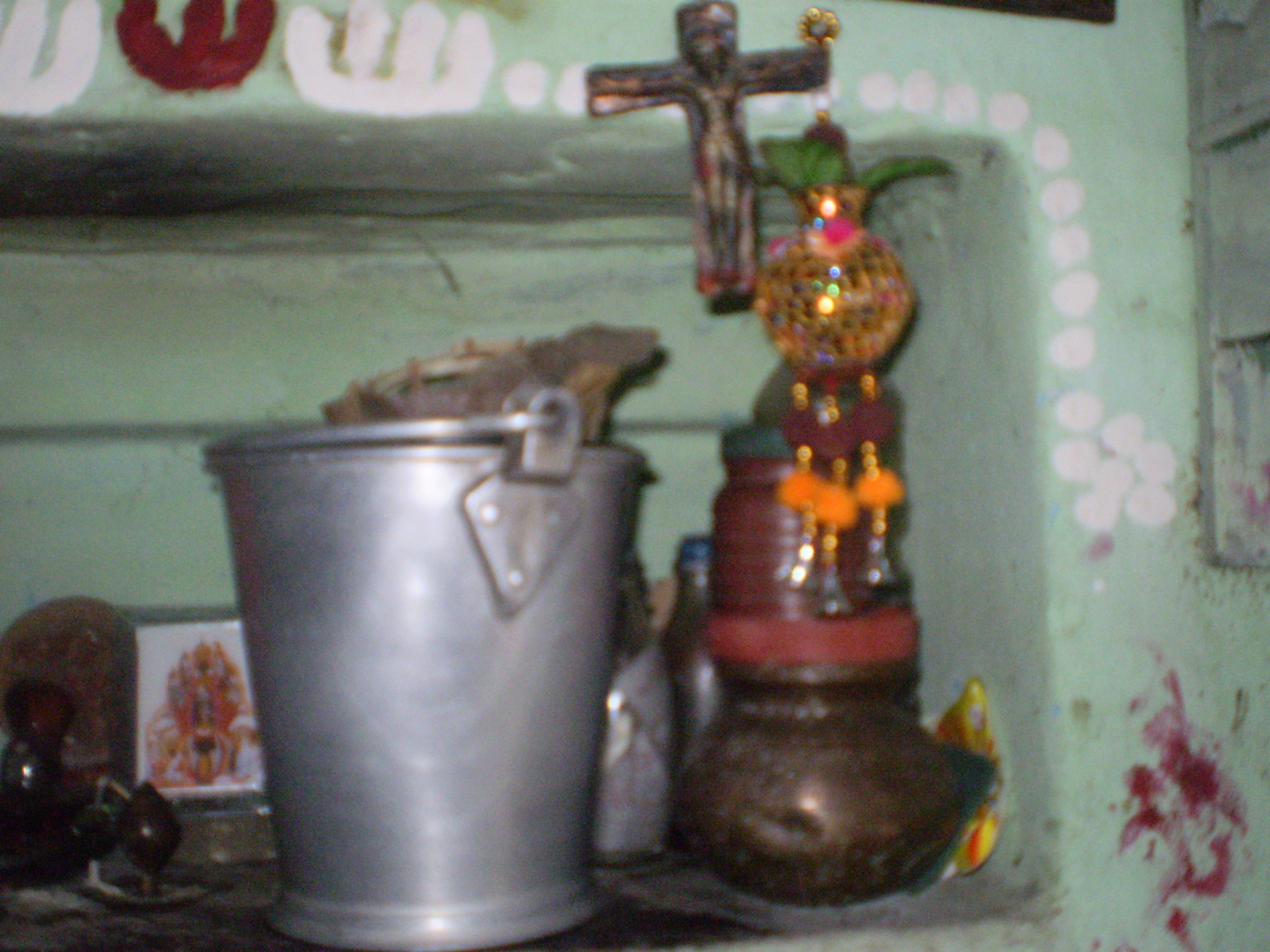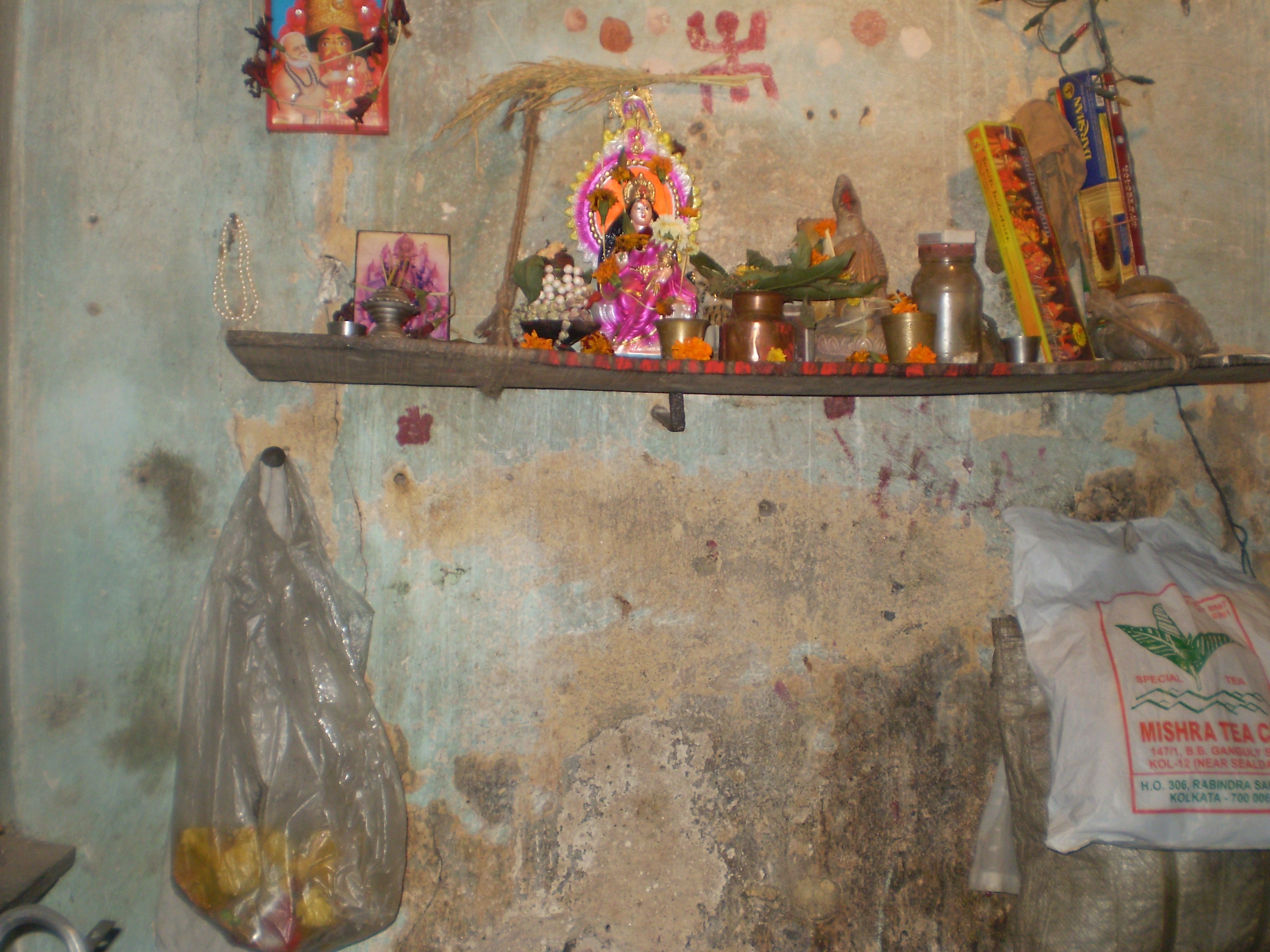Date: February 4
Time: 6:00 – 8:00pm
Venue: Bow Bazaar Highschool
In session 9, the journalists did not seem very keen on doing the action project any more. They said they were finding it difficult to meet and work as a group, since they stayed in different places within the broad locality, and it was difficult to co-ordinate time. Besides they seemed to feel that the para problem chosen by them was too big for them to create any appreciable difference. Thus, what had seemed to be an exciting proposition fell a little flat.
Since this was to be our last meeting before the 1st week of April, when their examinations would get over, we decided not to start anything new. We however, did some interviews with the journalists, on their experience so far with Para Diaries.
Journalists talk on Being Journalists
Robi's interview
My name is Robi Mondol. How Para Journalism has helped me is this –I have learnt how to fearlessly approach people and talk to them. Earlier I used to be scared, how they would react, what they would say.
So, would you say that your self-confidence has increased?
Yes.
Another thing that I liked – when I went to Jyotsna di's house, I liked their family. Her sister treated me as her own brother . That felt good, forming such relationships with people. I liked roaming around with Bina di in the Bowbazar area. The day we went to do the “Bowbazar landmark” assignment, I had gone with Bina di to the Shiv mandir. I enjoyed that.
But you already knew the Shiv mandir. It was in your para already. So what was different about this trip?
No, it is in the larger Bowbazar area, not exactly in what I used to define as para. Through this work I have got to know my day, when myself and Rahul had taken you and Bina di through all those short cuts , via the dark alleys, to College Street, that had also felt good. You did not know the way, we are insiders, we took you there through lanes familiar to us. You got to see new ways of reaching College Street in the process. This was good.
Jyotsna's interview
In the process of being a para journalist, I've got to know people. I have understood better how to interact with different Earlier I used to shout and talk while talking to people. But since the time I joined Sanlaap and these sessions facilitated by Kalam, this changed on its own. Now I speak softly with people.
I would have never guessed that you ever talked loudly to people ! I always found you quiet and peaceful.
But I used to…Nowadays, I speak softly, so that people do not misunderstand me, don't think I am bad. This is the result of having interacted with a lot of people lately.
Among the assignments that you did, which ones did you like and which did you not enjoy?
What I liked was doing the Landmark assignment. The garbage assignment—I didn't much like. I was scared of how people would react to what I was doing.
Earlier you were Jyotsna, now you are Jyotsna, para journalist as well. How do you feel with your newfound identity?
Ever since my parents have heard that I am doing these reporting assignments, they've been ever so proud. They have said, we never dreamed you would do something like this one day. You will go far.
Do you like writing?
Yes.
Did you write even before para journalism happened?
Yes, but now I write much more than I used to. Moreover, my handwriting has improved.
Did you try to improve your handwriting consciously, so that others would be able to read it more easily?
Yes.
I would like to say here…that I never thought myself, that I would one day be a journalist. It is a big thing for me. How time changes people! I promise to put in my best effort. Earlier I used to have negative assumptions about reporting work. Now after doing it myself, I feel it is good work. How would people get to know what is happening in a particular poor locality, without coverage? To whom would the poor people confide otherwise? It makes them feel light, to ba able to tell their story. Then the journalists make arrangements for publishing the stories of their lives. Many people thus get to know, and this is the way change can happen.
Mintu's interview
After the first session I was absent for quite a few sessions of Para Diaries. However I made it a point to ask my friends what they had been doing in the meantime, what I had missed.
Why did you miss the sessions?
I had problems at home. My dad was away and I had responsibilities.
How does it feel like to be a Para Journalist?
I am enjoying the work. I am becoming more aware. Earlier I used to be more reactive. Now I try to understand people more. I feel that I would be able my para famous through my writings. I earlier used to think journalistic work wasn't so good, now I think otherwise.
Apurbo's interview
I live in a red light locality. People are used to thinking only bad things about our para, this has given us a chance to tell them about the good things here as well. I faced some problems in interviewing the people in the para, however, people like sex workers. Since they see us everyday, they don't give is that kind of space to ask them questions.
Would this have been easier for an outsider?
Yes. Maybe. Since we live in the same para, we have a different kind of relationship with them. We don't usually exchange words. We don't talk, they don't either. Since we go to school, do our studies, etc., maybe they feel we are “good” boys, they keep their distance. They are accustomed to talking about their business, their dhanda, using bad language. These things they don't usually do in front of us. If we are seen talking to them, other para residents may also think something bad. That is the problem.
Has this problem lessened after becoming para journalists?
Not really. How many people in the para actually know about us being journalists?
When you go out and talk, take interviews, do you feel these barriers lessening at all?
Well, as I said, how many para insiders know that we are journalists?
But when we are doing interviews/assignments, aren't we introducing ourselves as such?
Yes, we are. But only to the specific people concerned. Not to the para at large. Again, another problem. When we did that assignment of interviewing the para goonda with a good heart, there was a problem. There are different political groups in the para. If I talk to someone from a particular group, people will not see whether I am doing journalist's assignment or not. They will think I am associating myself with that party. There are problems such as these.
Well, how do you feel about the experience of being a journalist, generally?
I feel good about trying to work for change within the para, change for the better. I now have a network with me, working together.
Pinky's interview
It was an eye opening experience. For instance, I had thought that Tulu da comes from a comfortably off family. But during the second assignment (my friend's house), when I went to cover his house, I realized that they have a lot of struggle in their lives. The home is small, very small. I came to know of his reality, and could tell others too, that things don't always look their reality. Again, during the “para livelihoods” assignment, when I was talking to a domestic help, I realized that people often ignore them as such – nobody asks what makes them take on such work, what are the problems of their lives etc. As a journalist, I could make their stories known. Same for wine sellers. Why have they taken on such jobs? Nowadays I feel that, looking from outside, you cannot know the reality of a person, whether she is good/bad. You have to know their stories. You have to excavate deeper, to know?
Supriya's interview
Have there been any changes inside after becoming a para journalist?
Yes. I am learning to think on my own, on my feet. When I am doing these writing assignments, I am not taking others’ help. I am being able to come up with new ideas on the spot. Earlier I used to forget things very quickly.
So, would you say that your memory has increased?
Yes.
Why?
My memory has increased, since nowadays it is doing so much work. When I am on an assignment, I am actually observing people, places and situations minutely.
Anjali's Interview
Para Diaries has been a completely new kind of experience for me. I had never attended a journalism workshop before this. I felt very excited about taking on different assignments! I wondered how it would go, what the outcomes would be. There were positive as well as negative sides to it. Going to my friend Tapas’ house and doing a story on it was less challenging since these people knew me. They asked me why I was doing this and I could explain satisfactorily to them. However, during the para livelihoods assignment, I chose to interview a prostitute. There I faced problems. They were especially resistant towards me taking photos. Still I convinced them somewhat. Many people there had lots of doubts and questions regarding my intentions. It was difficult to convince them.
How does it feel to see your name, your writing in print for the first time?
I saw Rahulda's story on me, and my story on Tapas posted on the blog. The thought that so many people would be able to read and know about us feels really good.
Have there been any changes in you because of this experience?
Yes. Earlier I was not too keen on writing, nowadays the flow has come. Moreover, earlier I was not acquainted with people living in red light areas. Now, during the course of my journalistic assignments, having gone to their homes and talked to them, I feel they can be good people like you and me, not necessarily bad because of the “redlight area” tag.
Tania's interview
As a para journalist, I want to make my para clean of garbage, and good, so that an outsider on entering the neighbourhood gets peaceful vibes. During interviews, I got to know people better, their reasons for doing what they are doing, not to judge them at once.
Any changes inside you?
I view people from a less judgmental perspective now.
Puja's interview
What did you like about Para Diaries?
I found people quite compliant. In the “para people types” assignment, I had interviewed a “lecturebaaj”. I liked the way she cooperated with me. I told her that when this interview comes out in print I would show her.
What did you not like about Para Diaries?
The idea of working as a team to solve a para problem did not work out. I did not like this. We needed to understand each other and the problems at home better.
Any changes in you?
Earlier I was scared of approaching people and talking to them. I wondered how to talk to them, what I would say. Now I have learnt how to interact with people. I have developed more courage. Without Para Diaries maybe this would not have happened. People at home have usually been restrictive about my going out but in case of Kalam's workshop, they have cooperated. Through their allowing me to do these workshops with you, I have got the freedom to go out on my own and know my para more.
Tapas’ interview
Did you learn anything new in Para Diaries?
I learnt how to take interviews, how to talk to different kinds of people, be it a para goonda or my friend's family. I learnt how to take photographs too. These were all new things for me. They feel good.
Earlier I used to speak very less. Barely was my voice heard. Post Para Diaries I am more okay with the idea of talking to different kinds of people.

